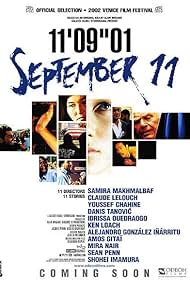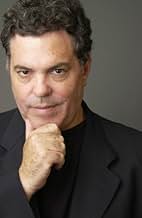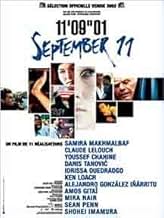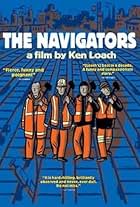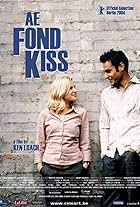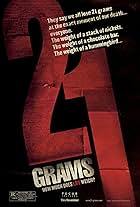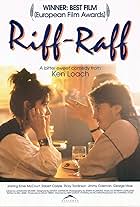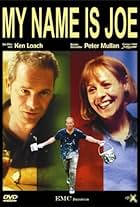The effects of the 9/11 terrorist attacks are told from different points of view around the world.The effects of the 9/11 terrorist attacks are told from different points of view around the world.The effects of the 9/11 terrorist attacks are told from different points of view around the world.
- Awards
- 4 wins & 1 nomination
Nour El-Sherif
- Youssef Chahine (segment "Egypt")
- (as Nour Elshérif)
Ahmed Haroun
- Le G'I (segment "Egypt")
- (as Ahmed Seif Eldine)
Sanaa Younes
- La mère (segment "Egypt")
- (as Sanaa Younés)
Maher Esam
- Le Palestinien (segment "Egypt")
- (as Maher Essam)
Storyline
Did you know
- TriviaAmos Gitai's segment was shot in a single continuous shot.
- ConnectionsFeatured in Chaplin Today: The Gold Rush (2003)
- SoundtracksSto te nema
Popular Song
Sung by Dajana Kacar
(segment "Bosnia-Herzegovina")
Featured review
I couldn't help but watch this film from the perspective as an objective alien viewing a 2-hour feature about Earthlings. To judge this film by its individual merits or failures is like trying to understand the people of this planet by isolating them geographically and culturally. When I see how little so many reviewers here at IMDb don't get that, it is no small wonder to me why we as a species can't get along.
Each eleven-minute film here offers us a hint of what we are as a species. We see how children thousands of miles away have no greater concept of American culture than American children (as well as adults) have of theirs. That's a dangerous thing, especially when it is evident that the reflexive acquiescence of God's will is summoned so easily in order to explain ignorance away. The events of 9.11 scale down personal tragedies, such as deafness and failed relationships, while giving legitimate perspective of true human suffering, such as those who have been caught in the cycle of violence in Bosnia and Chile. Personal bitterness, such as a soft-news TV journalist being beaten out of a hard-news story, clashes with poverty-stricken children who shrug off an opportunity for overwhelming fortune and immeasurable fame when they realize that they can at least secure the cost of education and medicine for the near future. What happens when one tries to keep score of human suffering? The futility of that question is answered profoundly in a segment revolving around an American soldier and Palestinian terrorist - or an American terrorist and Palestinian soldier, or two soldiers or two terrorists, all depending on which flag you happen to be waving. It all sums up to countless numbers of ghosts and grieving mothers. And the cacophony of all that gets summed up in a segment featuring voices of every human emotion on 9.11, along with visions that defy any conventional understanding of terror. It isn't the numbers that stagger us, but one lonesome figure flinging himself into certain death. The question is: if we can relate so strongly to that figure, why is it so difficult for us to relate to the dying mother in Burkina Faso, or the torture victim from Chile, or the leg-less man in Bosnia, or the Muslim-American woman whose son is condemned as guilty until proven innocent, or the lonely old man who we usually tend to look away from on the street? Why are so few Americans only able to see the terrorist attacks on 9.11 as an American tragedy and not as an extension of human tragedy that is continuously being recycled? Until people of all nations can share in each other's suffering, we will always be doomed.
The film '9.11' is capped off with a segment which one can accept as an allegory that man's need for righteous indignation and violence is as much a part of his nature as killing is for a snake. The snake gets the last word in though, that there is no such thing as a holy war. Snake smarter than man, eh? I can't say that any of these individual films were great. Some, like that last segment was too clever for its own good, and some made me wish that the filmmaker made better use of his or her eleven minutes. But taken in whole, it is an astoundingly effective experience. I've always wished that a project covering short films from all over the world could be shot in one day- illustrating us in all of our similarities and differences. Using 9.11 as a starting off point is ingenious, since our personal and political tragedies are what brings us together when we're at our best, and what keeps us apart when we are at our worst. To fault this film for any artistic shortcomings is fair ground, but to fault it for its personal and political leanings is to add insult to injury. This film is a wake-up call to see the pain that is all around us and to respond with something other than finger-pointing and jingoistic pride. It's shown us the past and the present and given us the opportunity to reflect on a more promising future, if we so chose.
Each eleven-minute film here offers us a hint of what we are as a species. We see how children thousands of miles away have no greater concept of American culture than American children (as well as adults) have of theirs. That's a dangerous thing, especially when it is evident that the reflexive acquiescence of God's will is summoned so easily in order to explain ignorance away. The events of 9.11 scale down personal tragedies, such as deafness and failed relationships, while giving legitimate perspective of true human suffering, such as those who have been caught in the cycle of violence in Bosnia and Chile. Personal bitterness, such as a soft-news TV journalist being beaten out of a hard-news story, clashes with poverty-stricken children who shrug off an opportunity for overwhelming fortune and immeasurable fame when they realize that they can at least secure the cost of education and medicine for the near future. What happens when one tries to keep score of human suffering? The futility of that question is answered profoundly in a segment revolving around an American soldier and Palestinian terrorist - or an American terrorist and Palestinian soldier, or two soldiers or two terrorists, all depending on which flag you happen to be waving. It all sums up to countless numbers of ghosts and grieving mothers. And the cacophony of all that gets summed up in a segment featuring voices of every human emotion on 9.11, along with visions that defy any conventional understanding of terror. It isn't the numbers that stagger us, but one lonesome figure flinging himself into certain death. The question is: if we can relate so strongly to that figure, why is it so difficult for us to relate to the dying mother in Burkina Faso, or the torture victim from Chile, or the leg-less man in Bosnia, or the Muslim-American woman whose son is condemned as guilty until proven innocent, or the lonely old man who we usually tend to look away from on the street? Why are so few Americans only able to see the terrorist attacks on 9.11 as an American tragedy and not as an extension of human tragedy that is continuously being recycled? Until people of all nations can share in each other's suffering, we will always be doomed.
The film '9.11' is capped off with a segment which one can accept as an allegory that man's need for righteous indignation and violence is as much a part of his nature as killing is for a snake. The snake gets the last word in though, that there is no such thing as a holy war. Snake smarter than man, eh? I can't say that any of these individual films were great. Some, like that last segment was too clever for its own good, and some made me wish that the filmmaker made better use of his or her eleven minutes. But taken in whole, it is an astoundingly effective experience. I've always wished that a project covering short films from all over the world could be shot in one day- illustrating us in all of our similarities and differences. Using 9.11 as a starting off point is ingenious, since our personal and political tragedies are what brings us together when we're at our best, and what keeps us apart when we are at our worst. To fault this film for any artistic shortcomings is fair ground, but to fault it for its personal and political leanings is to add insult to injury. This film is a wake-up call to see the pain that is all around us and to respond with something other than finger-pointing and jingoistic pride. It's shown us the past and the present and given us the opportunity to reflect on a more promising future, if we so chose.
- How long is September 11?Powered by Alexa
Details
- Release date
- Countries of origin
- Languages
- Also known as
- Eleven Minutes, Nine Seconds, One Image: September 11
- Production companies
- See more company credits at IMDbPro
Box office
- Gross US & Canada
- $127,035
- Opening weekend US & Canada
- $7,046
- Jul 20, 2003
- Gross worldwide
- $1,266,063
- Runtime2 hours 14 minutes
- Color
- Sound mix
- Aspect ratio
- 1.85 : 1
Contribute to this page
Suggest an edit or add missing content

